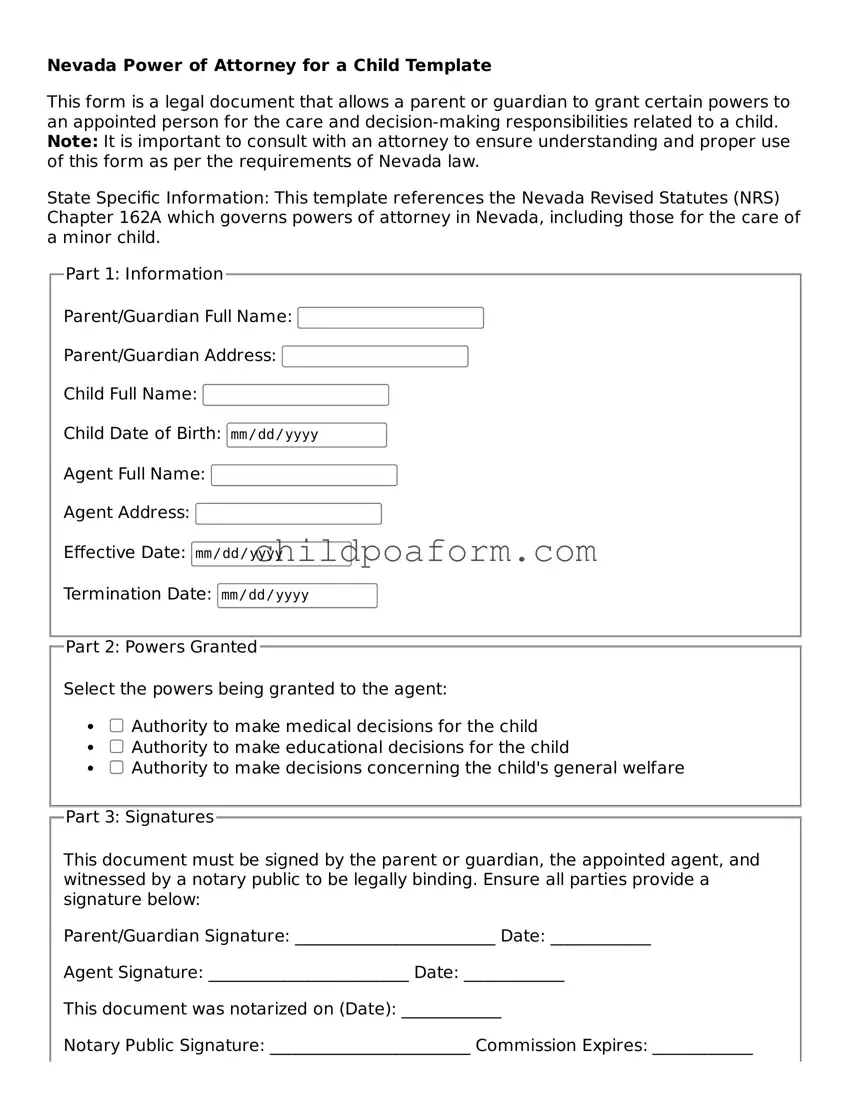Instructions on Utilizing Nevada Power of Attorney for a Child
Granting someone the authority to make decisions on behalf of your child is a significant step, and in Nevada, this responsibility can be formalized through the Power of Attorney (POA) for a Child form. This document allows a parent to authorize another adult, often a close family member or trusted friend, to make childcare decisions in their stead, whether due to temporary absence, health issues, or other circumstances that prevent them from providing care. Filling out this form correctly is vital to ensure that it accurately reflects your wishes and complies with Nevada law. Below is a step-by-step guide to help you through this process, ensuring clarity and peace of mind during times when you cannot be there to care for your child yourself.
- Identify the parties: Start by writing down the full legal names and addresses of the parent or legal guardian granting the power and the person who will be granted this authority.
- Specify the child’s details: Include the child’s full name and date of birth to ensure there’s no confusion about whom the document pertains to.
- Define the powers being granted: Clearly state what decisions the appointed person will be authorized to make. This may include educational, health care, and general welfare decisions.
- Determine the duration: Indicate the specific start and end dates for the POA. If no ending date is specified, note the conditions under which the arrangement will end, such as the child reaching a certain age or the return of the parent.
- Provide special instructions (if any): If there are any specific conditions, restrictions, or additional powers you wish to include, list them clearly to avoid any ambiguity regarding the grantee’s authority.
- Signatures: The form must be signed by the parent or legal guardian in the presence of a notary public. Ensure the document is properly notarized to confirm its validity.
- Witness verification: Some forms require witness signatures in addition to notarization. Check the requirements for your state and, if necessary, have the form witnessed as prescribed by law.
- Provide copies to relevant parties: Once the form is filled out and signed, give copies to the appointed person, any institutions or individuals who may need to recognize this authority (such as schools and healthcare providers), and retain a copy for your records.
Completing the Nevada Power of Attorney for a Child form is a straightforward process, but it’s important to be thorough and precise. This document not only safeguards your child by ensuring they are cared for by someone you trust, but it also provides legal clarity and direction in situations that can often feel uncertain. By following the steps outlined, you can confidently delegate parental responsibilities when you're unable to fulfill them personally, knowing you've taken appropriate legal measures to protect and provide for your child's well-being.
